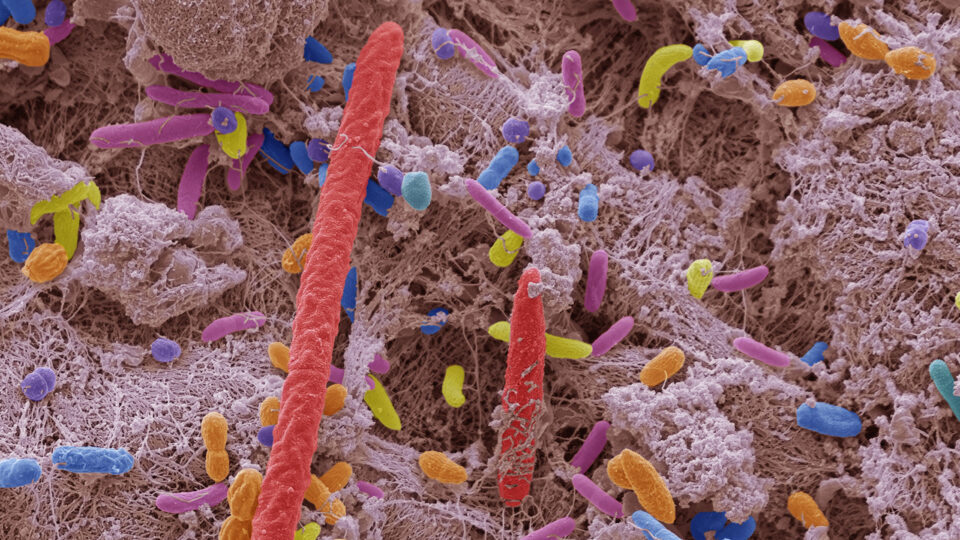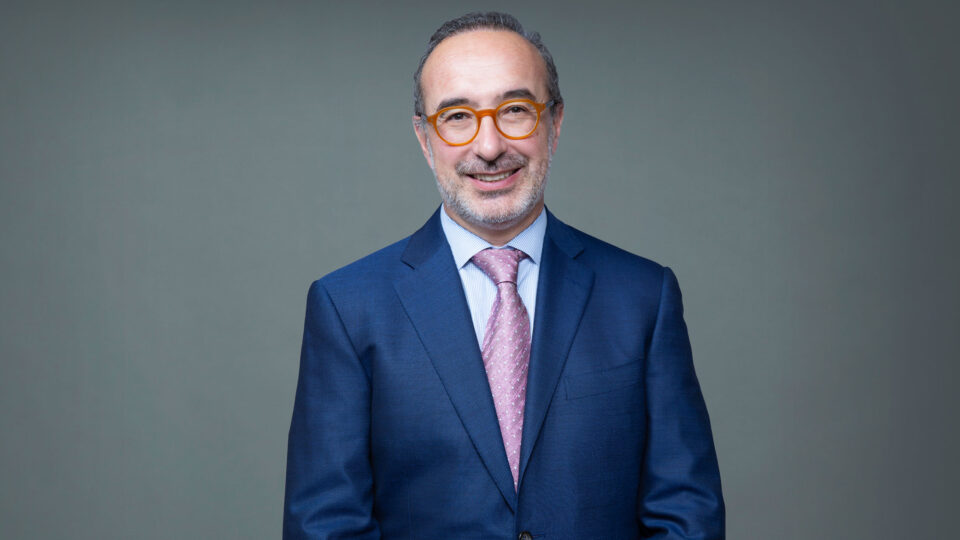With $1.7 million in funding from a Drug Discovery Award from The Mark Foundation for Cancer Research, Perlmutter Cancer Center investigator Alec Kimmelman, MD, PhD, and a colleague at the University of British Columbia are seeking to identify a first-in-class small molecule inhibitor of the amino acid transporter SLC38A2/SNAT2 as a potential treatment for pancreatic ductal adenocarcinoma (PDAC).
“The profound effects that we see when we target this alanine transporter in pancreatic tumors in mice are extremely encouraging and are a major step forward to credentialing SLC38A2 as a potential target in this deadly disease,” says Dr. Kimmelman, the Anita Steckler and Joseph Steckler Chair of the Department of Radiation Oncology and senior advisor to the dean for cancer strategy and operations at NYU Langone Health.
“The profound effects that we see when we target this alanine transporter in pancreatic tumors in mice are extremely encouraging.”
Alec Kimmelman, MD, PhD
One of the deadliest forms of cancer, PDAC has a five-year survival rate of approximately 10 percent. Most patients present with tumors that are unresectable, and standard-of-care chemotherapy and immune checkpoint inhibitors offer minimal improvements.
“Therapeutic options for patients with pancreatic cancer remain severely limited, and any novel targets warrant significant study,” Dr. Kimmelman says.
Building on Previous Discoveries
An internationally recognized leader in the cancer metabolism field, Dr. Kimmelman has identified several novel metabolic pathways in PDAC. He shares The Mark Foundation award with Seth Parker, PhD, an assistant professor of biochemistry and molecular biology at the University of British Columbia and a former postdoctoral researcher in Dr. Kimmelman’s NYU Langone lab.
The investigative trail that led to their current collaboration began with a study Dr. Kimmelman and his team published in 2016 in Nature. In that work, the researchers found that in the nutrient-poor environment of the stroma, pancreatic cancer cells signal pancreatic stellate cells to secrete non-essential amino acids, including alanine. The cancer then uses alanine as a fuel source in place of glucose.
In a subsequent study, published in 2020 in Cancer Discovery, Dr. Parker led a team of researchers in Dr. Kimmelman’s lab who found that pancreatic cancer cells use SLC38A2/SNAT2 to take up alanine from their microenvironment. The researchers showed that genetically targeting the transporter created a metabolic crisis in cultures of pancreatic tumor cells, impeding their growth. The group also demonstrated that targeting SLC38A2/SNAT2 in animal models, using genetic tools such as CRISPR, shrinks pancreatic tumors.
“It has been an exciting journey from our first observations that pancreatic cancer cells can use fuel from neighboring cells in these nutrient-poor tumors to, more recently, identifying the key molecular mechanisms of how this nutrient sharing occurs,” Dr. Kimmelman says.
An Ambitious Goal
In the new study, Dr. Kimmelman and Dr. Parker and their colleagues will develop a cell-based SLC38A2 uptake assay and screen a large chemical library. Confirmed hits will be subjected to medicinal chemistry review, further validation, and extensive profiling for in vitro and in vivo activity, specificity, and selectivity in PDAC cells and tumors. Identified leads will serve as chemical scaffolds for future medicinal chemistry–led optimization.
In addition to The Mark Foundation grant, the project is supported by funds from Technology Opportunities and Ventures, the technology commercialization arm of NYU Langone.
“This generous influx of support,” says Dr. Kimmelman, “enables us to pursue our ultimate goal—to bring a compound forward for the clinical development of a treatment for pancreatic cancer.”
Disclosures
Dr. Kimmelman has financial interests in Vescor Therapeutics and is an inventor on patents pertaining to KRAS-regulated metabolic pathways and redox control pathways in pancreatic cancer, targeting GOT1 as a therapeutic approach, targeting alanine transport, and the autophagic control of iron metabolism. He is on the scientific advisory board of Rafael/Cornerstone Pharmaceuticals and OncoRev and has been a consultant for Deciphena and Abbvie.






